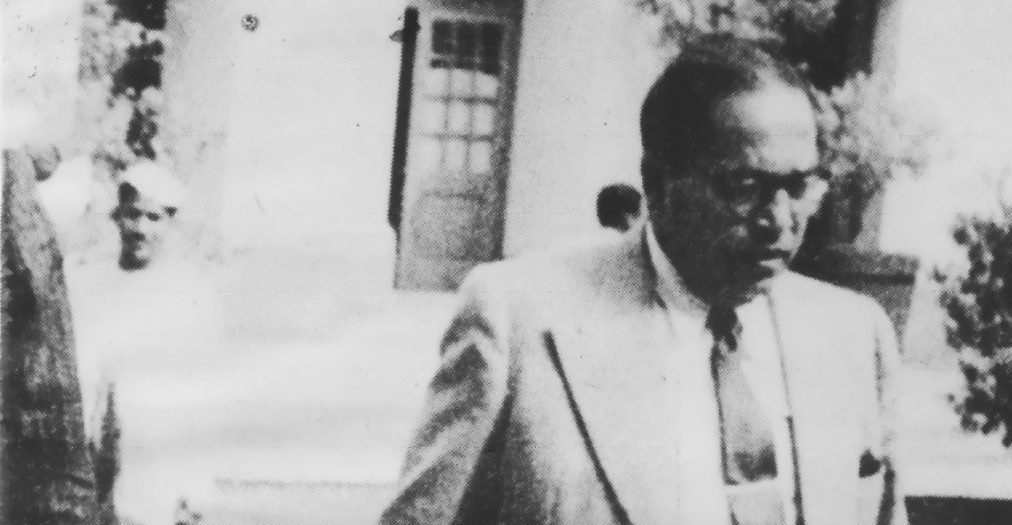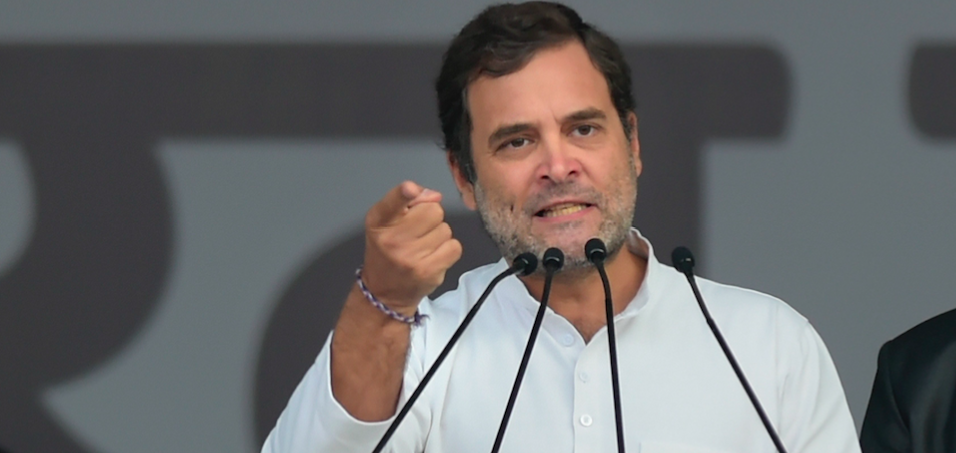Sushil Aaron
First Published in https://thewire.in/government/why-rahul-gandhi-threatens-the-bjp-even-when-he-is-not-winning
Hardly a month goes by when there isn’t a tirade against Rahul Gandhi in the Indian media. The arguments from analysts go broadly like this: India no longer has a place for dynastic politics, especially in contrast to Prime Minister Narendra Modi, who rose from humble roots. Gandhi is unable to revamp the Congress party; he has not revitalised it through intra-party elections. This failure forces the high command to rely on handpicked figures in states who lack credibility on the ground to win elections.
India desperately needs a strong opposition, critics reiterate. By staying on at the helm in the party, Gandhi is neither leading as he should nor moving out of the way. Some want the Congress to collapse as an entity – so that an alternate formation can emerge organically from the disaffection with the BJP. Rahul Gandhi is evidently stopping India from a form of political development that would inexorably happen without him, well-meaning liberals argue.
There is a lot to speak for this argument. Dynasty per se may not be the problem for Indian voters; the BJP, after all, has its own share of hereditary politicians. However, Gandhi does suffer from a certain form of cultural illegitimacy in contemporary India: he is a Westernised politician with an Italian, Christian mother, one who is more comfortable in English in contrast to his improving Hindi. He stands in opposition to a vernacular political elite determined to transform the iconography and symbols of the Indian Union along determinedly religious and Hindi-oriented lines. Andrew Breitbart famously said that politics is downstream from culture. The broad traditionalisation of Indian society over the decades through religious programming on TV, saas bahu soaps, Bollywood movies and tropes of a nationalism that socialise Indians to despise foreigners furtively delegitimises a figure like Gandhi.
The Congress is in bad shape nationally. It lost undivided Andhra Pradesh through serious judgment errors on handling Jaganmohan Reddy and by creating the state of Telangana. It has governments in Rajasthan, Punjab and Chhattisgarh, a measure of strength in Karnataka and Madhya Pradesh, but finds itself vanquished in the big states of Uttar Pradesh, Bihar, Maharashtra and Bengal – despite Gandhi’s campaigns.
Repeated failures in elections put his relevance in doubt. Gandhi is, however, not about to go anywhere. The Congress can’t seem to do without him and he has nowhere to go. He cannot go off into exile like leaders in other countries, such as Ayatollah Khomeini, Nawaz Sharif and Benazir Bhutto, and return at an opportune time. The Gandhis don’t have the kind of resources to sustain themselves abroad, and besides, Gandhi is now a conviction politician, serious about fighting RSS’s ideology and threats to values of the Constitution.
Given that he is here to stay, what is the future of his politics? One can safely bet that it won’t proceed in the direction that critics would like him to take. Take the matter of internal democracy in the party for example. Gandhi has not proceeded on that agenda; this is not the time to pursue it even if he wants to as the party is struggling to hold on its members in the face of temptations from the BJP. The Congress is starved of funds; corporate India is wary of associating with it, even if many industrialists prospered during its rule in the past. This is obviously no moment for upheaval.
Congress and the BJP can’t do internal democracy
Even so, the very expectation that the Congress should be able to do without a Gandhi or perfectly be a representative democracy within is questionable given India’s evolution as a nation and what role the Congress played in it as a political formation.
Since its establishment in 1885, the Congress was an organisation that represented the interests of Indian elites who both benefited from and were marginalised by colonial rule. Mahatma Gandhi and the Congress brought together upper castes and other social groups during the anti-colonial movement. The idea of India as a unified political entity took shape alongside the mobilisation during the freedom struggle in a subcontinent that was until then governed by empires, princely states and local fiefdoms. The Congress party and India’s founding fathers crafted a first-rate Constitution for a poorly-educated traditional society marked by caste observance, superstition and feudal obligations.
The fit between modern institutions and traditional society was always bound to be awkward. B.R. Ambedkar observed that India had attained political democracy without social democracy – and the Congress literally housed these contradictions with its large umbrella character. It had everyone in it, from the enlightened Nehru to caste-supremacist landlords next door to the Dalits who were not allowed to access village wells.

The Congress tried to manage India’s diversity and its social tensions through a combination of high-minded social democratic rhetoric, patron-client arrangements to carve up state spending and judicious caste alliances for winning elections. This model was always likely to be under stress as prime ministers from Nehru through to Rajiv Gandhi found out. Their rule certainly reflected their personalities and weaknesses, but they could neither control the venal or regressive instincts of their followers nor was it in their gift to satisfy every constituency, and this eventually gave rise to newer caste-based and regional parties, which are, in significant measure, also dynasty-based formations.
The point of this is to say that India’s size, diversity and social structure predisposes it to personality politics – one where issue-based policy differences play second fiddle. Most democracies contend with the dominance of individuals as well, but in India complicated loyalties in a highly differentiated system refracted by caste, class and region makes it very difficult for political parties to have a US-style primaries-based politics without alienating groups that lose out in internal polls. That’s the reason why neither the Congress nor the BJP have a primary-based system of leadership selection. To put it differently, a factionalised society operating with a first-past-the-post electoral system creates a constant crisis of representation. It is not geared to yield a politics that forges unity and consensus, as each group looks out for its own interests.
What national parties inevitably do to rule such a fractious society – and this what the Congress and BJP have done – is to develop a political culture centred on personality. Nehru, Indira Gandhi, Rajiv Gandhi and Narendra Modi are all products of an imperative to transcend or smother the political effects of India’s complexity. This culture has a few characteristics.
One is that party politics may have ideological drives but the necessity of mobilisation will attract all manner of adherents to the sphere, from noble do-gooders to rank opportunists. In this sense, every country gets the opposition it deserves, as parties reflect the social forces that produce them. For that reason, Rahul Gandhi really can’t attain an Archimedean point from which to shakedown the Congress; he can only work with what he’s got while aiming to set the ideological tone for the party at large. The other feature is that leaders in postcolonial societies with modern political institutions have a populist streak and usually traffic in nationalism to mobilise support, as both the Congress and the BJP have done.
One can therefore deduce that the overlay of political modernity on a traditional society produces a presidentialised system dominated by leaders who express and articulate the aspirations of society while also aiming to lead it. National politics becomes a form of theatre and it is in that theatre that a clash of visions is expressed – and that’s where a figure like Gandhi has a place, as substance of beliefs matter in public life.
A moral vision of politics
Rahul Gandhi’s relevance is reflected in the paradox of Congress’s decline and the amount of disproportionate attention that he gets from Hindu nationalists. The Congress secured only 19% of the national vote in 2019, it has barely increased its tally in Parliament – and yet Gandhi is able to constantly summon the fury of the BJP leadership and the troll armies loyal to it every time he delivers a striking speech or tweet. A reason for this is the perennial danger of Gandhi’s brand visibility and that he seems the only national politician consistently taking on Modi.
But a significant part has to with the way Rahul is framing the contest with the BJP. He is articulating an ethic of decency and offering a vision of social democratic India that values expertise, does not scorn intellectuals, protects minorities and uses the state to lift all groups. He is drawing the contrast to the BJP as the purveyor of an ugly majoritarianism, marked by the constant vilification of minorities, the corruption of public culture with hate speech, the perfection of social divisions and the nurturing of an anti-intellectual temper.
In the age of identity politics, marked by conflict over beliefs, Rahul Gandhi is subliminally projecting politics as a moral struggle, of stopping the slide to darkness, of recovering the human capacity to relate to one another, of restoring the rules of political order and combat. There appears to be no market for Rahul Gandhi’s politics now as Indians luxuriate in a majoritarian miasma fortified by hatred for Muslims, by money, use of Big Tech, fake news and brute state power. If charisma is defined by what people see of themselves in their leaders, more Indians see Modi expressing their own deepest values rather than Gandhi.
Gandhi’s reach is currently limited, but the utility of having at least one politician like him is that by his visibility he draws attention to the alternative way of making India work, however flawed his own party’s record and forbearers have been. The future of moral politics in stressed societies is difficult to fathom. Analysts of Russia like to say that their ruling regimes are invulnerable until they are not – and that’s why Alexei Navalny threatens Vladimir Putin even if his prospects sound hopeless now.
There is no guarantee that Modi’s aggressive domination will yield the ends he desires. The BJP’s ability to monopolize all forms of politics may still be in doubt, as protesting farmers are showing. Rahul Gandhi is betting on time, that Indians will tire of majoritarianism while his standing remains intact. He has to continue clarifying his offer, improve his tactical game, address complex party challenges including strengthen internal institutions and executive functioning, cultivate allies and hold on to enough capable loyalists and opportunists to reap the whirlwind, if it does materialize
Gandhi’s message may not have wide reach in rural India but even an urban, middle class audience for his politics can be a force multiplier under certain conditions – to keep him in the mix of viable alternatives to the BJP over time. The odds for politicians waiting for people to discover their better angels are not good. The meek and the despised may not inherit the Earth, but they can hold up a mirror.
Sushil Aaron, PhD is a writer on Indian politics
.


